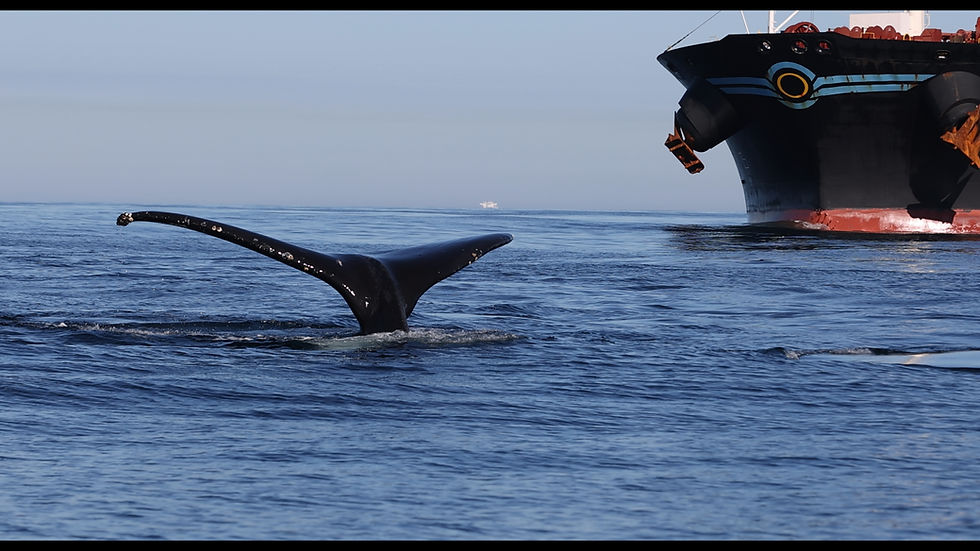AVAILABLE TO WATCH NOW
COLLISION
COLLISION presents how a worldwide increase in shipping traffic is threatening our oceans, its inhabitants and the planet. It focuses on the under-reported issue of fatal ship strikes on whales, a threat which is endangering their very existence.
The film not only highlights the issues but also presents clear and available solutions to encourage governments, authorities and global shipping companies to make vital changes.
The Ocean Souls Films team partnered with leading scientists, NGO’s and worldwide authorities, ensuring an accurate and scientifically based account of the realities of the harsh impact of marine traffic on ocean life.

Humans are using the oceans more and more as highways to ship goods across the world. A 2014 study found that global shipping traffic had increased four-fold in only two decades. As the oceans become increasingly laden with large ships travelling at a high speed, whales are increasingly at risk of being hit and killed by this traffic. A recent study in Canada found that along with entanglement in fishing gear, collisions with ships was and still is the number one cause of non-natural deaths in large whales.
The IWC has recognized that by reducing the spatial overlap of both the high numbers of cetaceans and the high numbers of vessels, is likely to remain the best way of reducing ship strikes. However, multiple solutions exist in different locations around the world.
We identify overlapping marine areas where a high density of whales (feeding or nursing grounds) meet a high density of boats. This is where most accidents occur and where solutions could be the most effective.
To evaluate the current dramatic situation, the Ocean Souls Films team talked to the best scientists, experts, conservationists, NGOs and agencies around the world and uncovered the challenging but successful stories. Unfortunately for the whales and marine ecosystems as a whole, technology is not evolving as fast as expected, thermal cameras are in need of some real modifications and improvements and acoustic buoys are helping but are yet to be perfect. Despite the complexities, there is hope and with just willingness, we could be saving thousands of endangered whales a year.
“For every whale confirmed to have died as a result of a ship collision there are dozens more killed by strikes that go undocumented with the ship unaware and the carcass sinking or not coming ashore.“
John Calambokidis, Research Biologist, and founder Cascadia Research
“I can’t possibly imagine that my colleagues on the shipping industry would not be willing to help, we are part of the problem, clearly we want to be part of the the solution."
Michael Barbaix - Supertanker Captain
.png)
.png)

.png)
.png)

.png)

.png)
.png)
.png)